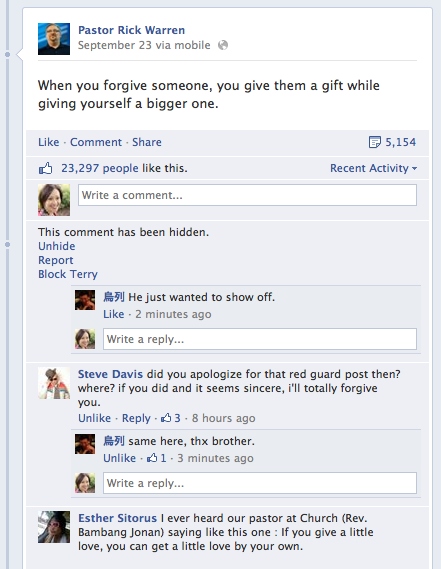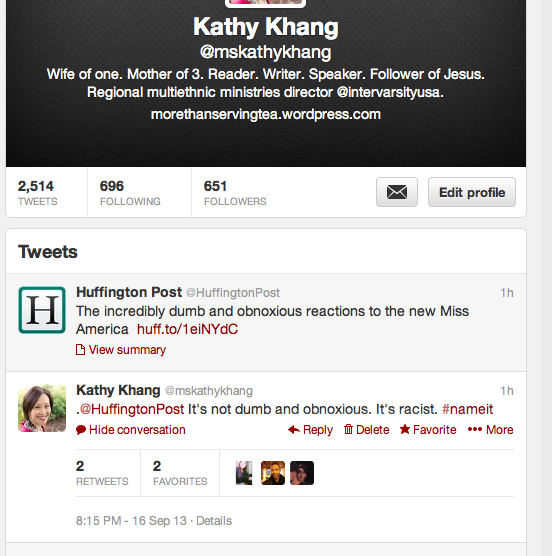I am always a bit stunned and saddened to hear children speak Ching Chong, especially when they do it in the presence of their parents without fear of being corrected or stopped.
The other day as we were trying to enjoy a windy 65-degree day at the beach we could not but overhear three families sitting in front of us discuss the uselessness of spending time to learn a second language. As if on cue, one of the kids started in on the Ching Chong with at least one other child and one adult chiming in. Gotta love those everyday racist experiences.
I cannot tell you how tired I am of having to bite my tongue when really what I want to do is approach the offending parties and explain to them how ignorant, short-sighted, and limiting their attitudes and action actually are. I sat there, staring at my husband while practicing mindful breathing when in reality I wanted to say as they passed by, “Oh, how good you Engirsh and Ching Chong speak. Almost perfect for Haole like you. Welcome to America.”
As you can see, I need Jesus because I have practiced this conversation for too long.
The irony is that language immersion programs and second language programs are growing because America continues to slip behind not only in math and sciences but also in its ability to train multicultural, multilingual skilled workers.
The irony is that I grew up bilingual, lost much of my Korean language skills as I immersed myself in my academics, learned enough Spanish to help my kids through high school Spanish, and hated the way my parents spoke English with an accent when I was younger.
It was bad enough that I looked so weird compared to the beautiful, popular girls at school and church. It was hard knowing that my home smelled weird because of the pickled, fermented cabbage and radishes and that I probably smelled weird, too. It was humiliating and terrifying to walk home, ride the bus, walk the halls knowing that there were boys and girls who threatened to beat me up, screamed obscenities at me, and made elementary school worse than it needed to.
I loved and hated being who I was. I fiercely loved and hated my parents for their broken English and flawless Korean. And I didn’t understand until at least a decade later that regardless of the Ching Chong American kids would use to taunt me and my family it was our very ability to speak in two languages interchangeably that put us squarely in the lead of the American dream.
My parents may speak with an accent but they speak two languages. Ching Chong be damned.
But like I said, I need Jesus.
I don’t need the American dream as much as I have needed to plunge into the pain of being an outsider and embrace my multifaceted identity as a Christian Asian American/Korean American working married mother of three in the suburbs as a gift to steward not for revenge or self-righteousness but for Kingdom purposes. I have continued to appreciate the gift of language(s) and culture, and while I struggle with the anger that too quickly bubbles up inside at the Ching Chong comments I also quickly fall into a deep sadness for those who do not see the diversity and beauty of all God’s people.
There is such a limited view of God if we only know Him through the eyes of one language, one culture. Just like meaning gets lost in the translation between languages, no single culture or language can fully express, explain, proclaim the fullness of who God is and what the Gospel is. We can get a glimpse, even a blurry yet beautiful picture but it’s not complete.
So I must also correct my image of those families, children and adults who think speaking Ching Chong is funny and harmless. They are not my enemies. They are the neighbors I am called to love, and if they can’t speak my language I must learn to speak theirs. Sigh. Love your neighbor. Love your neighbor. Love your neighbor.
Which leads me back to those families on the beach. They are back today. Pray with me that my scowl softens and that maybe a day at the beach will be the perfect opportunity for me to stretch my multilingual skills.

